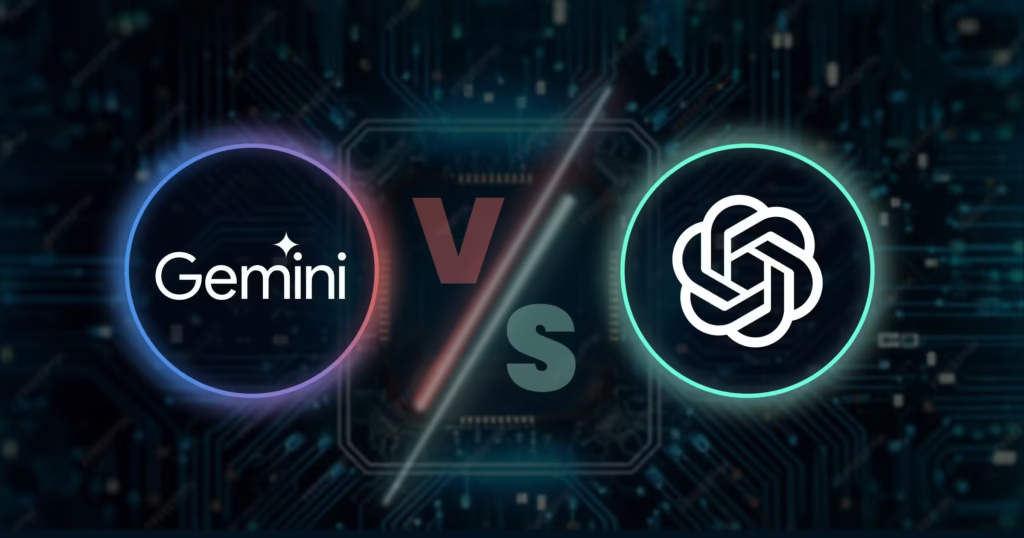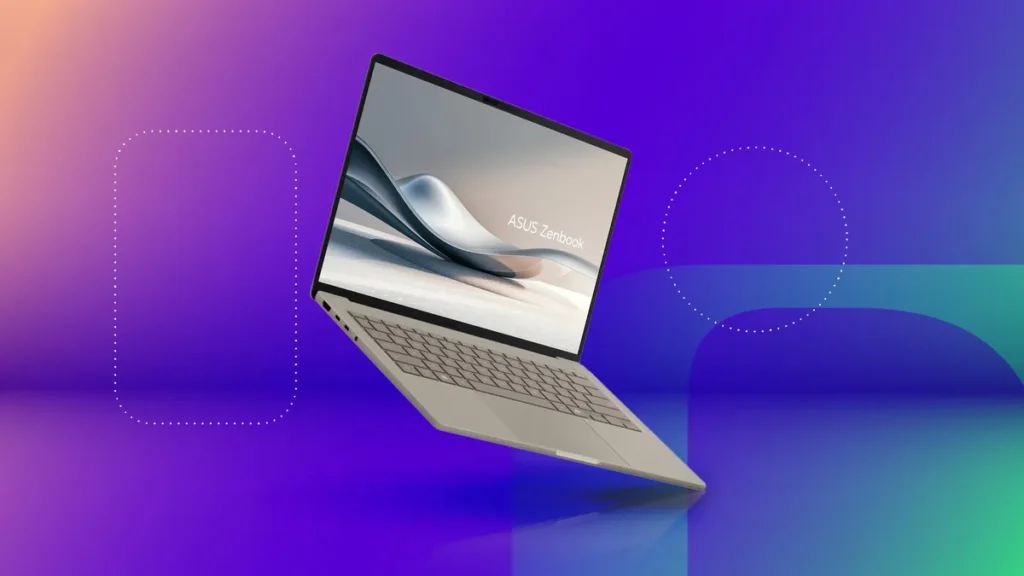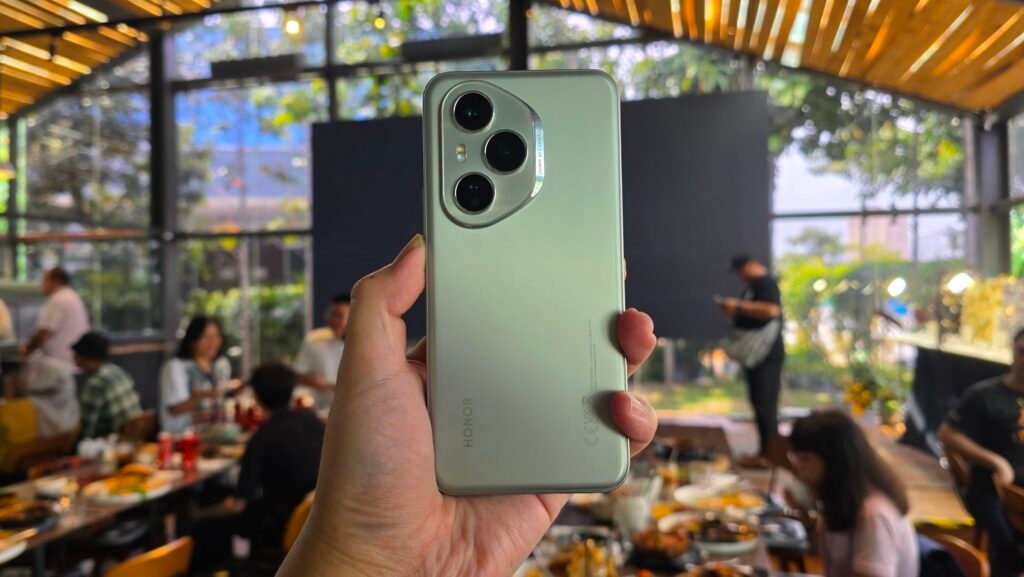🔍 Google Gemini Makes Web Browsing Easier for People With Vision and Hearing Challenges
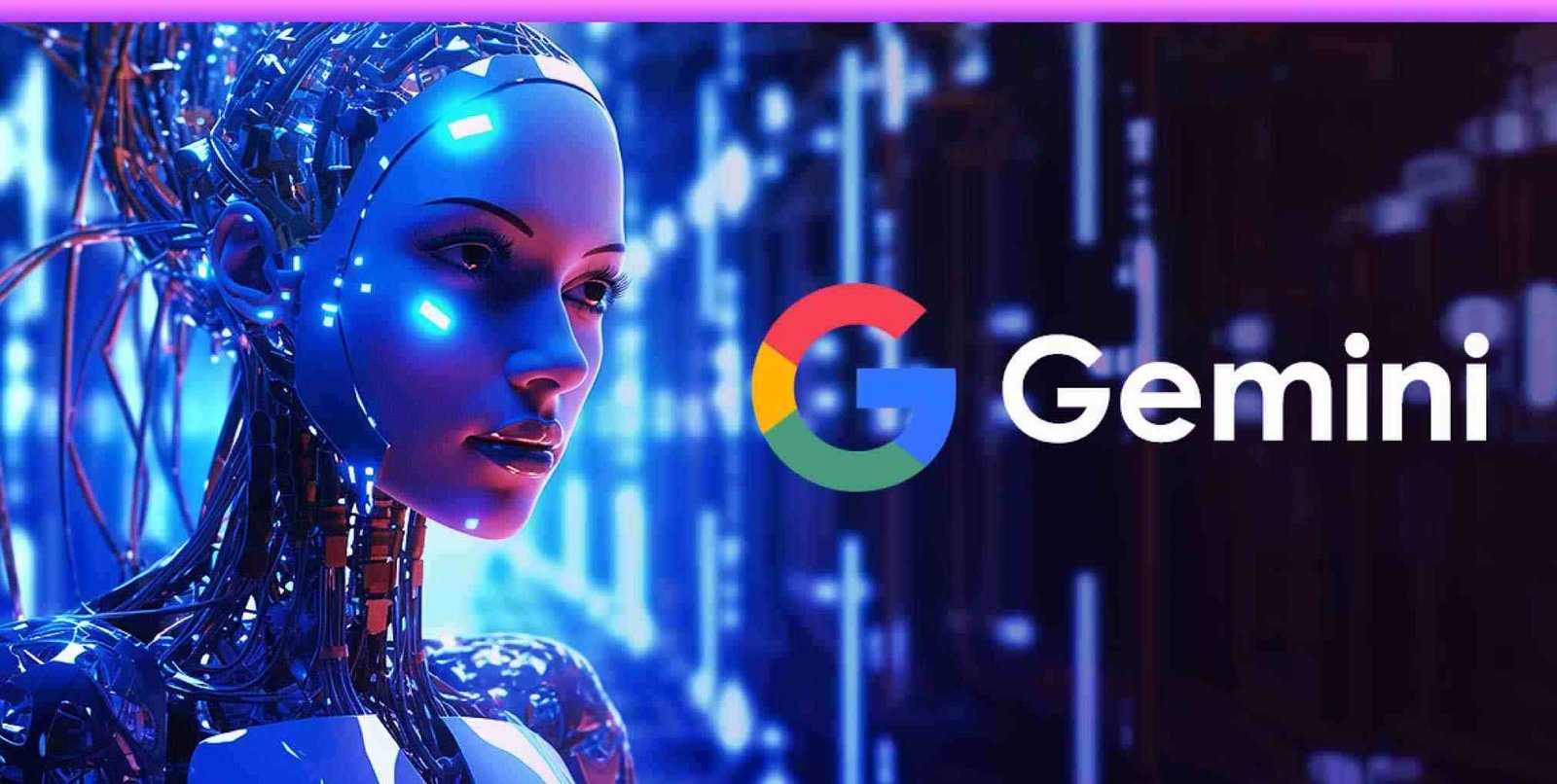
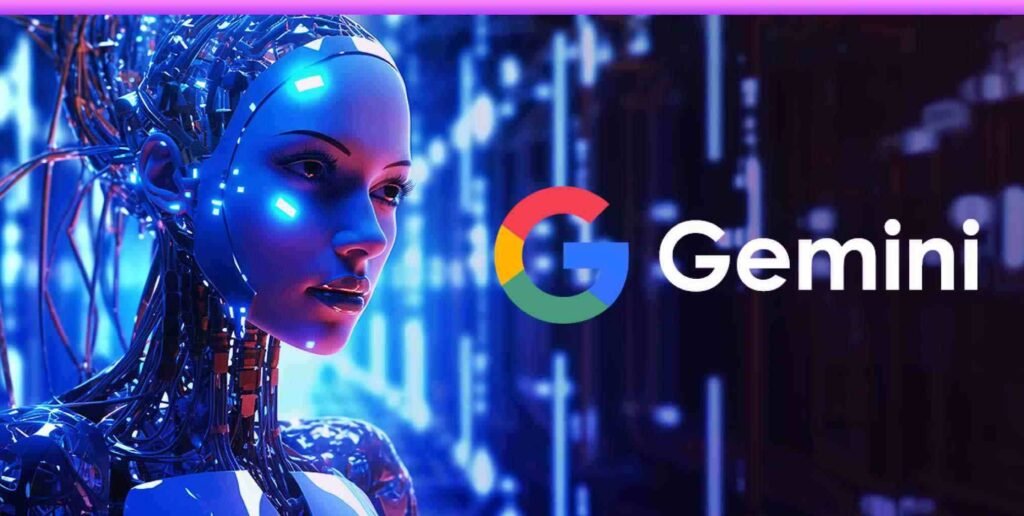
By Nadeem Sarwar | Published May 15, 2025
Google is taking another big step forward in accessibility with new features designed to make Android and Chrome more usable for people with vision and hearing difficulties. Building on its long-standing accessibility tools like TalkBack, Google has now supercharged the experience by integrating its AI assistant, Gemini, into the mix — and it’s more interactive than ever.
Let’s break down how this update changes the game for users who rely on accessibility features.
👀 Gemini Gets Smarter at Describing Images

For years, Android’s TalkBack screen reader has helped visually impaired users navigate their devices using voice commands and spoken screen content. In 2024, Google added Gemini AI to this system to describe images in more detail — but now, it’s going even further.
Instead of just reading what’s on the screen, Gemini can now hold conversations about what users see.
So what does that mean in practice?
Let’s say a friend sends you a photo of their new guitar. With the new upgrade, you won’t just hear “a picture of a guitar.” You’ll be able to ask,
🗨️ “What brand is it?”
🗨️ “What color is it?”
🗨️ “Is there anything else in the picture?”
This two-way conversation is now possible, giving users more control and context than ever before. It’s not just a step forward — it’s a leap toward a more interactive and independent experience.
📱 TalkBack Now Includes “Describe Screen” with Gemini
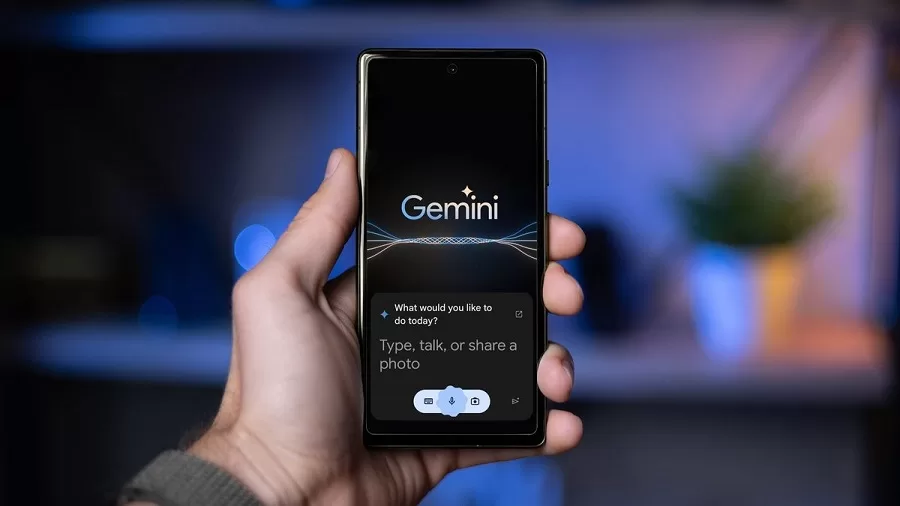
In the latest Android update, the TalkBack menu includes a new Describe Screen feature. This tool lets Gemini provide detailed overviews of the content on your screen and answer questions about it.
For example:
- Browsing a clothing website? Ask Gemini: “Which jacket is best for snowy weather?”
- Looking at a food delivery menu? Ask: “What sauce pairs best with this sandwich?”
Gemini can even tell you about discounts, product details, and other relevant info by analyzing the entire screen — a huge help for those who can’t rely on visuals.
🧏 Expressive Captions Bring Emotion to Text

Google’s Chrome browser is also getting some accessibility upgrades, especially for users who are hard of hearing.
The latest enhancement? Expressive Captions.
Instead of flat, robotic subtitles, Expressive Captions are designed to capture the emotion and tone of what’s happening in the video. Watching a football match? Instead of seeing “goal,” you might now see “goooaaal!” to better reflect the excitement in the commentator’s voice.
Even better, these captions go beyond spoken words. They also include:
- 👂 Whistles
- 👏 Cheering
- 😮 Sounds like someone clearing their throat
Expressive Captions will roll out on devices running Android 15 or later in the US, UK, Canada, and Australia.
🔍 Chrome Gets Adaptive Text Zoom for Better Reading
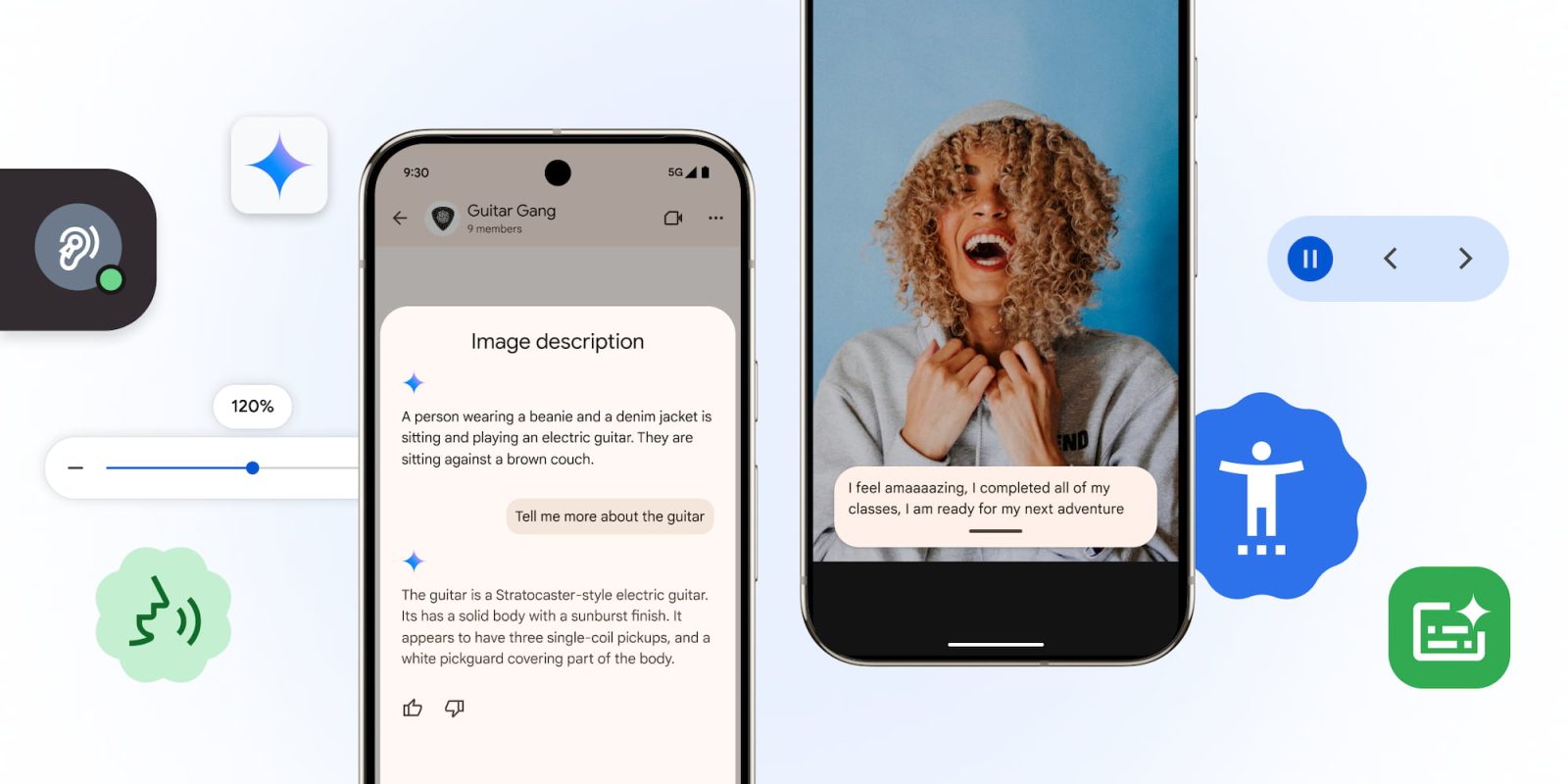
Another notable change is coming to the Chrome browser on Android: Adaptive Text Zoom.
Before, increasing text size often messed up the entire layout of the page — text would overlap, buttons would shift, and images might get hidden. Now, that’s no longer a problem.
With Adaptive Text Zoom:
- You can zoom in on text without affecting the rest of the webpage layout.
- A simple slider at the bottom of the page lets you choose how much to zoom.
- You can apply zoom preferences site-wide or just for specific pages.
This is perfect for users who struggle with small fonts or need specific adjustments to comfortably browse online content.
🤖 Why These Updates Matter
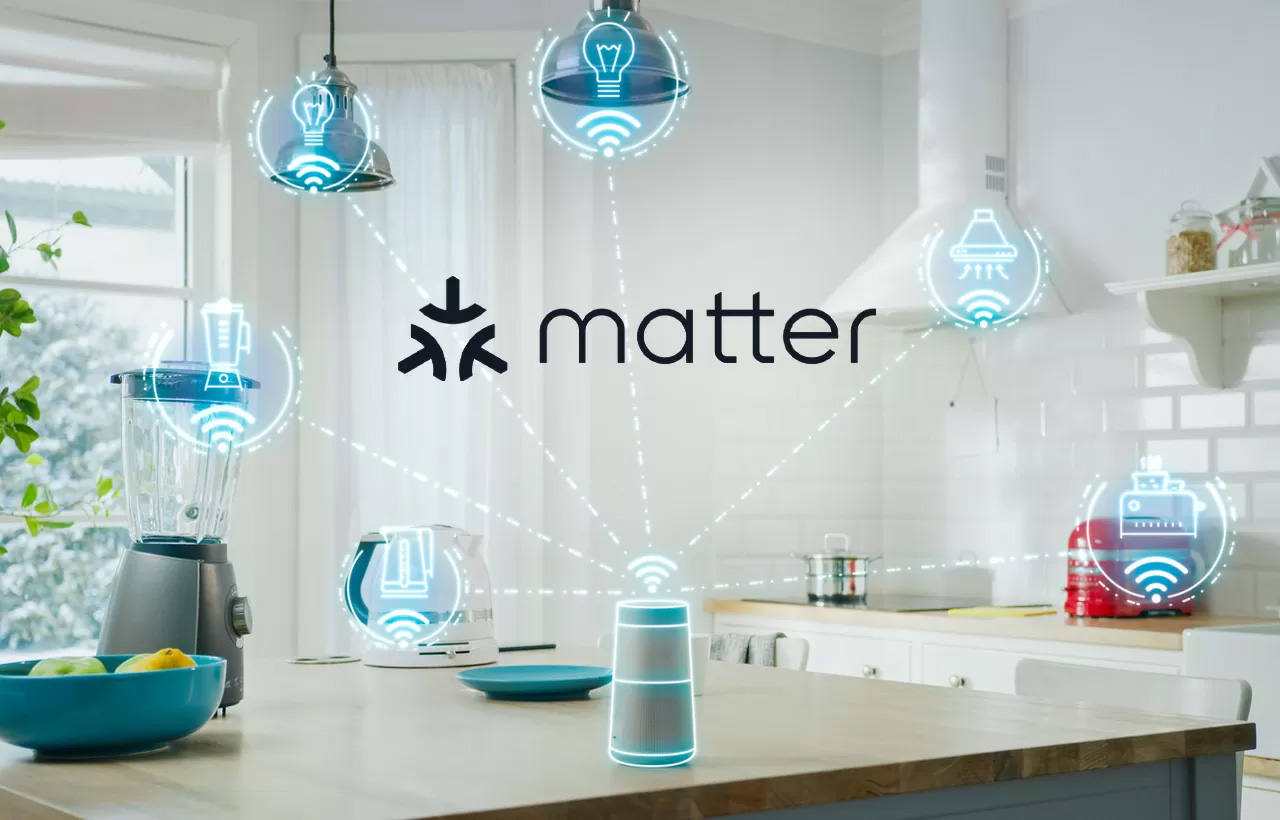
These features aren’t just small tweaks — they represent a major evolution in how AI can support accessibility. By making tools like TalkBack and Chrome smarter and more conversational, Google is giving users more freedom and autonomy than ever before.
Whether it’s describing images, reading product details aloud, or enhancing video captions, Gemini is helping to close the gap for users who’ve long faced barriers to technology.
🧠 Advanced Insights: How AI is Reshaping Accessibility

Google’s approach to accessibility through AI like Gemini is part of a larger shift:
- Context-aware tools like Gemini respond not just to commands but also to intent and nuance.
- Conversational AI allows users to ask real-time questions and get helpful answers without relying on sight or sound.
- Emotion-aware features like Expressive Captions help make digital experiences more inclusive, engaging, and emotionally rich for everyone.
As AI continues to evolve, expect features like this to become standard — not just for accessibility, but for a more intuitive and human-like digital experience for all users.
❓ FAQ: Google Gemini & Accessibility on Android
Q: What is TalkBack and how does Gemini work with it?
A: TalkBack is Android’s screen reader for people with visual impairments. Gemini enhances it by describing images in detail and answering follow-up questions.
Q: What devices support Expressive Captions?
A: Expressive Captions are available on devices running Android 15 or later in select regions like the US, UK, Canada, and Australia.
Q: How do I access Adaptive Text Zoom in Chrome?
A: You’ll find a slider at the bottom of the page when you open Chrome on Android. You can choose how much to zoom in and set it for all or specific pages.
Q: Can Gemini describe anything on my screen?
A: Gemini can describe most visual content, like images, catalogs, or webpages. It’s especially useful in shopping, messaging, and social apps.
Q: Is Gemini available outside TalkBack?
A: Right now, Gemini’s Describe Screen is built into the TalkBack menu for accessibility users, but Google may expand these features further in future updates.
🏁 Final Thoughts
Google is making serious strides toward inclusive digital design, and the latest Gemini features are a big part of that vision. Whether you’re navigating a webpage, watching a video, or just trying to understand an image your friend sent, these tools are bringing the web within reach for more people — and doing so with empathy, intelligence, and style.
These aren’t just tech upgrades. They’re reminders that everyone deserves a seamless digital experience — and AI might be the key to making that happen.
Let me know if you’d like this article turned into a visual layout (e.g. for a blog, Medium post, or press kit), or if you’d like a shareable version (like PDF or Google Doc)!

